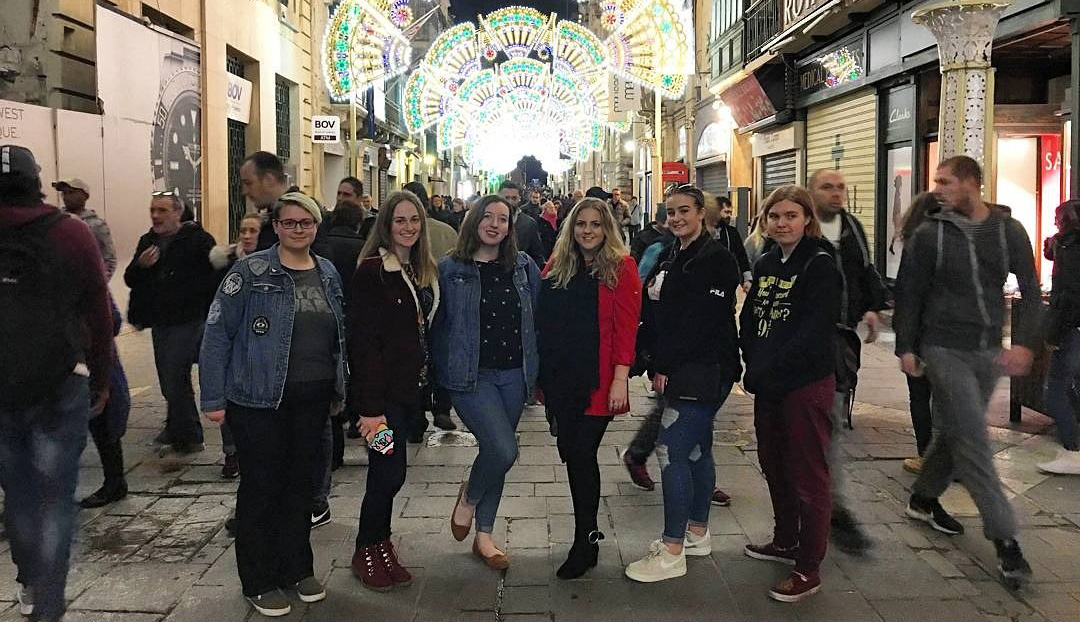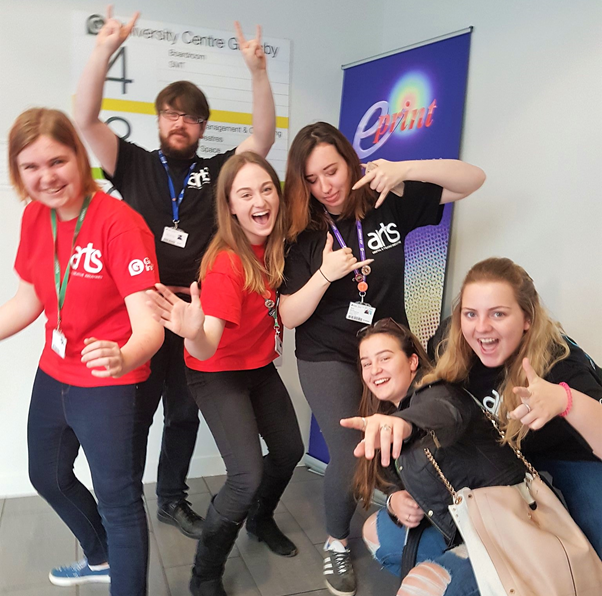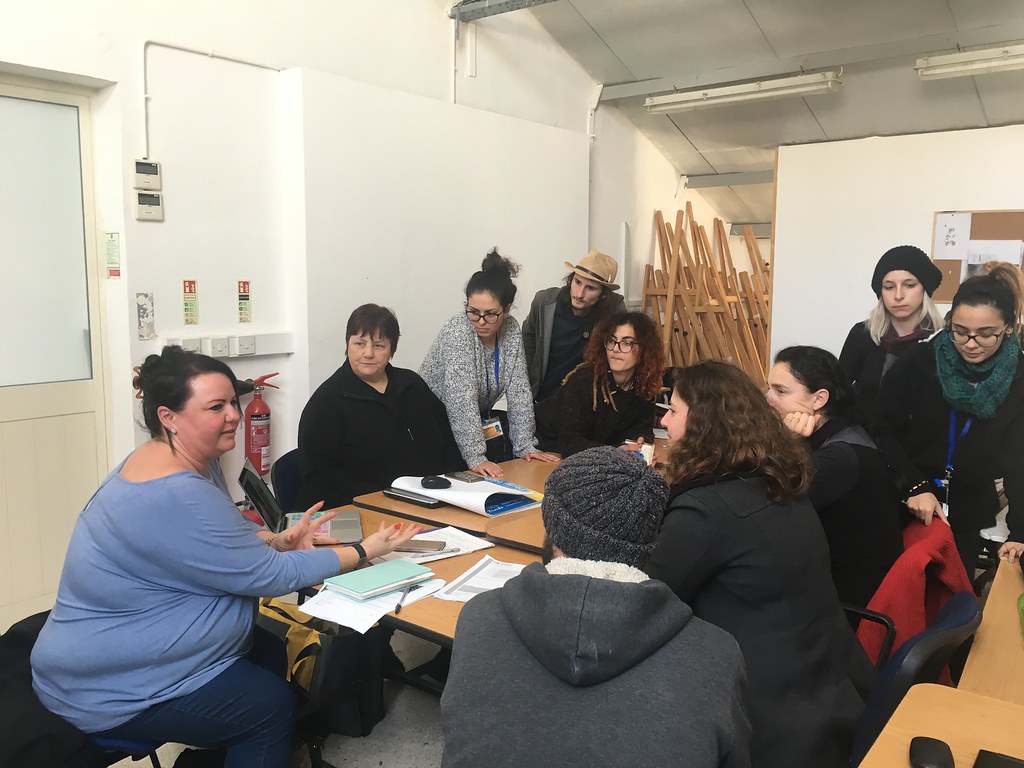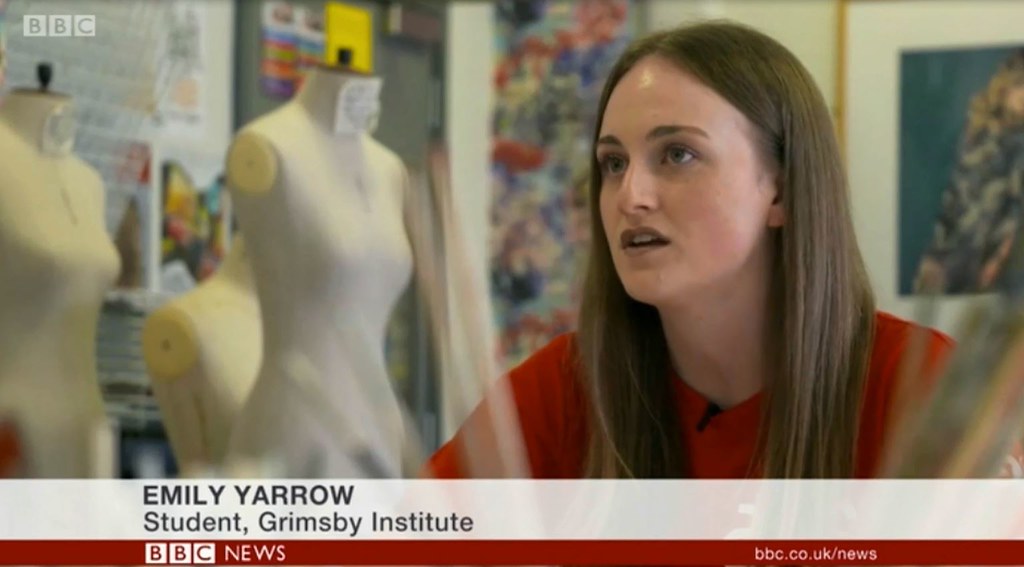
Giving students from an area with high levels of deprivation the skills they need to succeed in creative and digital industries.
Determined to increase the employability, aspirations and social mobility of its less advantaged students, Grimsby Institute is using Erasmus+ funding to provide learners with international vocational placements.
The CREATE project saw 12 BTEC Art and Media students live and work in Malta and Germany for three weeks.
“Grimsby is an area well known for high levels of deprivation,” explained the organisation’s Associate Principal Emma Forrest-Leigh. “We’re one of the top in the country unfortunately, so we’re looking to provide our young people with some of the chances they perhaps might not have had otherwise.
“Our research found that in the creative and digital sectors, there is a higher proportion of people that end up working in Europe, working freelance, needing to be independent and to have their own soft skills, than those in other sectors.
“We wanted to combine all of those things and the Erasmus+ project seemed to be a great fit.”
Changing the way both students and staff see their work
The learners were divided into two groups of six, with one group spending three weeks with a leading a VET provider in Malta and the other being hosted by a similar company in Germany.
The experience of the students chosen, from the change in working environment to the difference in culture, showed in a range of ways.
“They brought new skills back in textiles handling, new software skills and stone-carving skills,” said Emma. “They are things we don’t cover here and you could see those influences in their final pieces that they just had in their exhibitions.”
Emily Yarrow, a participant who undertook her three-week placement in Malta, said: “We experienced new mediums like metal work, stone work and jewellery making, which has inspired greater creativity. It’s given me more confidence to explore new techniques and an open mind about working and living in another country.”

But it isn’t just the students who came back with fresh ideas from the exchanges - staff accompanying them returned full of inspiration too.
“We’re reconfiguring our computer studios so that they are set up the way that we saw in Germany. Students aren’t all facing the front – they are facing each other and working in small groups with linked screens,” Emma said.
“In Malta, there was some paperwork that the director had developed to send out to employers who had enquired after students doing freelance work for their companies. The paperwork asked the employer questions like ‘Would you be prepared to give formative feedback for the learners?’ and ‘How would our learners benefit educationally from the work placement?’
“It filtered through all the placements that would only be useful to the employer requesting it, so we’ve introduced that here across the board with our employability team and it’s working very well.”
Twenty years of commitment to Erasmus+
Emma’s passion and enthusiasm for the Erasmus+ programme has been borne out of years of experience.
“I’ve worked with Erasmus+, including the predecessor programmes Leonardo and Comenius, for twenty years now,” she explained. “When I graduated, I was working a job in Wales and was offered the opportunity to go to Finland as part of a staff exchange.

“I remember thinking back then that I’d always make Erasmus+ a real core value of mine in my education work and I have done that ever since I began as a teacher.
“At the college here we call it a life-changer because that’s what I believe it is. It changed my life; it was a real high point for me and an eye-opener, and everybody that I’ve seen go through Erasmus+ has blossomed and become so successful and confident in themselves.
“We carefully pick the people that we think would benefit the most – not always our high-flyers.
“A lot of students had never been overseas and there were even some staff members that hadn’t been abroad. We had to get a lot of new passports and there were some nerves, which I think is a good thing because it’s those kinds of participants who get the most from it – and that’s what we saw.”
I remember thinking that I’d always make Erasmus+ a real core value of mine in my education work and I have done that ever since I began as a teacher.
Emily agreed: “It was truly a life-changing experience for me. I have never had much opportunity to travel outside of England and I especially didn’t think I would have the confidence to go without my parents.
“After our return home we were proud to be ambassadors for the Erasmus+ programme in our country.”
Coverage on the Beeb!
The organisation’s commitment to the programme and eagerness to promote its benefits resulted in national exposure this year when the BBC got in touch and asked to feature Grimsby Institute on the News at 10!
“The BBC contacted the Association of Colleges and asked who was doing interesting work with European study and work programmes and they recommended us,” said Emma. “It was a chance for our leaners to share what they have done and the benefits of working in Europe.
“I recorded a long radio piece that was broadcast on BBC Radio 4. So it started with the TV interview, but when the BBC saw the extent of the project and how it’s embedded into our planning – that it wasn’t a ‘one-off’ – they then recorded this radio interview as well.”

Keeping the end-goal in mind
As someone who has experienced Erasmus+ and its predecessor programmes, both as a participant and a project coordinator, Emma’s advice for organisations starting out with the programme is to “always have the end in mind”.
She said: “Sometimes when you’re applying for funding, all the paperwork, the systems and the safeguarding can feel like a lot of additional work and it can seem quite daunting when you start out.
“But when you see the leaners come back with that excitement in their eyes and you can see the amount they’ve grown – that’s what you’re doing it for.”
Has Grimsby Institute’s success story left you wanting to know more about how Erasmus+ funding can help you? Take a look at our apply for VET mobility funding page.
